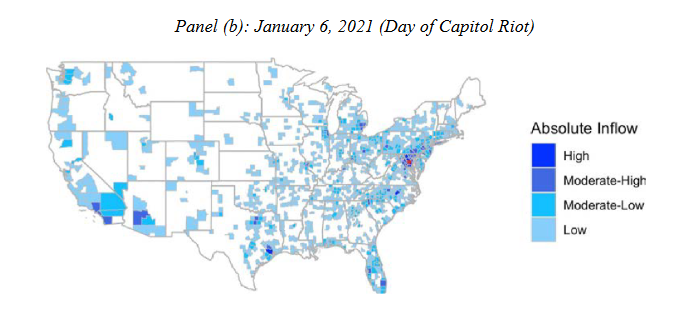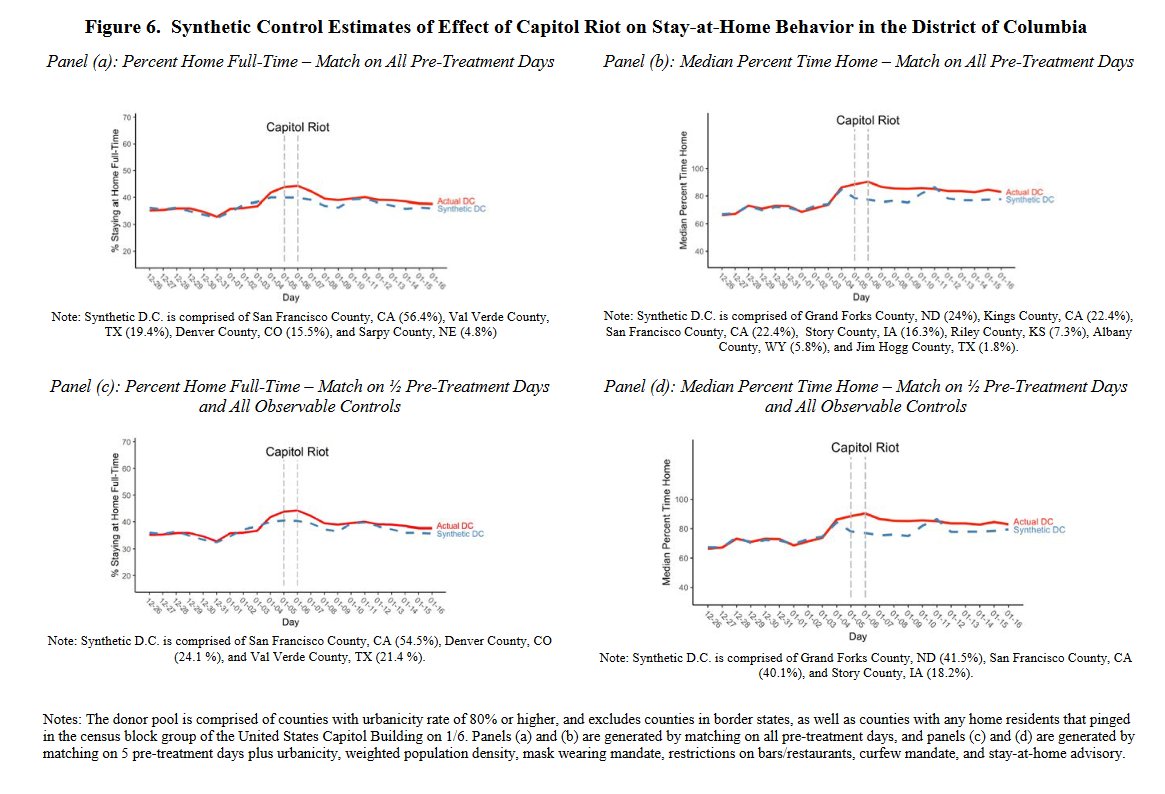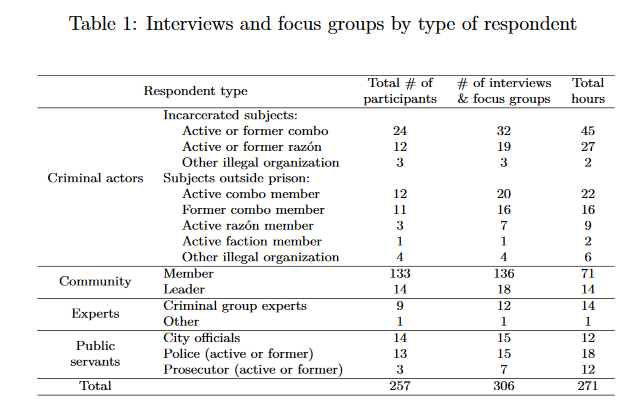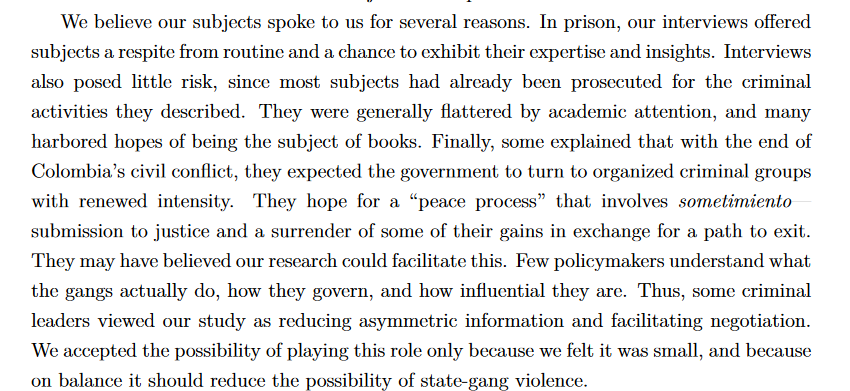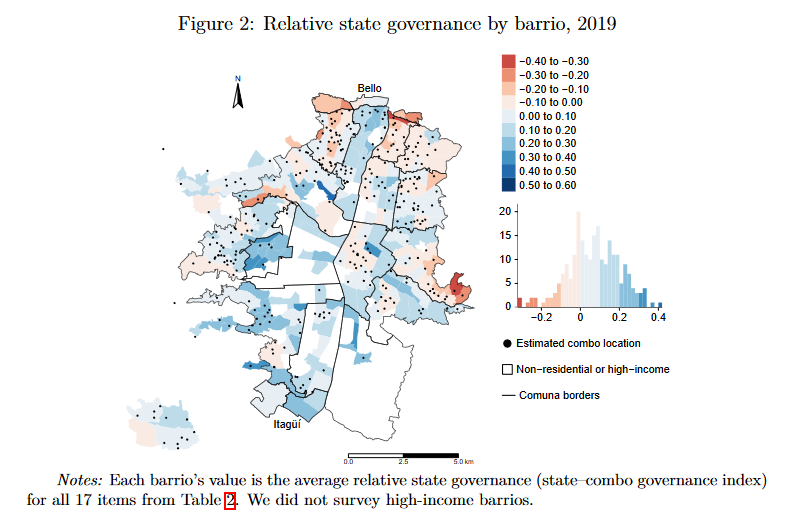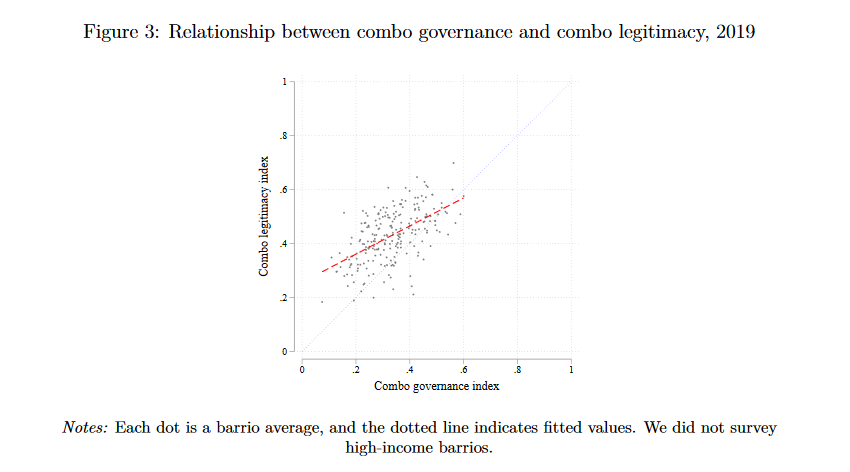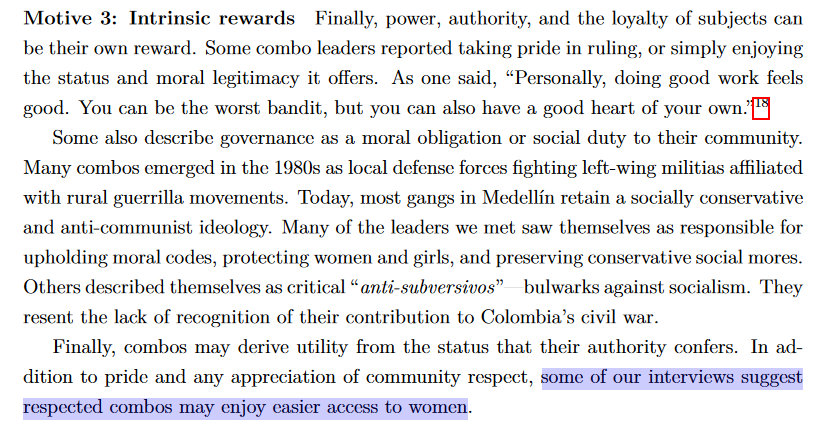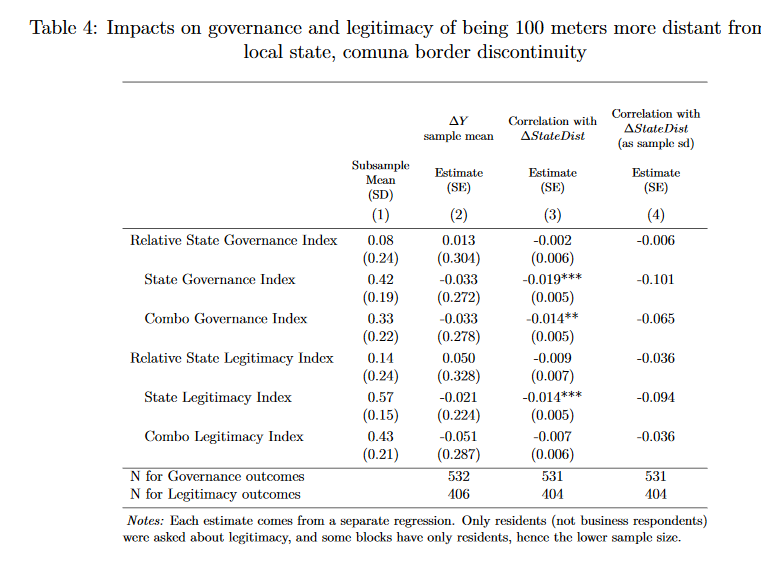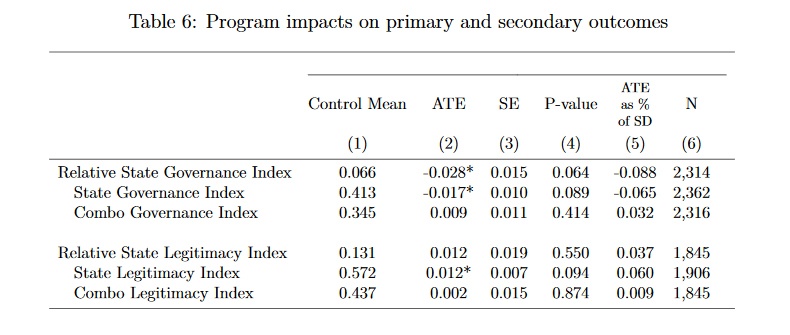guys there are some cool #NBERday papers today
We'll start with a theoretical paper.
Q: What causes polarization?
A: Not fake news. Not media bias. *Volume of information* and basic information sorting rules. #NBERday https://www.nber.org/papers/w28465
Q: What causes polarization?
A: Not fake news. Not media bias. *Volume of information* and basic information sorting rules. #NBERday https://www.nber.org/papers/w28465
This paper basically makes a model where people build beliefs by seeing information shared, then weighting it by how it fits with priors and with the reliability of the sharer. #NBERday
As the size of an information network rises (i.e. more social media usage on more platforms with more connections), selection rules necessarily get more intense, and priors get more evidence under them. #NBERday
The problem is, if people misperceive the sharing-rules their connections adopt (i.e. they misunderstand the degree of selectivity in sharing), and if the typical information signal in the system is relatively weak or low-quality, you get weird chain reactions. #NBERday
Basically, if people build belief sets by clicking on shared links, and if they don't have a picture of the world of "links which were not shared," and if they (correctly) perceive that "most links are worthless," they can spiral. #NBERday
Once they've got a couple of reliable hits from a small number of sources, that builds. Even a lot of true contradictory evidence amounts to a weak signal because the typical signal is so weak and doesn't overthrow the prior. #NBERday
I normally dislike theoretical modeling papers but this one is more plausible than most.
Anyways, it suggests that fake news and media bias don't drive polarization: large contact networks and selective sharing do. #NBERday
Anyways, it suggests that fake news and media bias don't drive polarization: large contact networks and selective sharing do. #NBERday
Speaking of polarization....
Q: Did the Capitol riot cause a COVID outbreak?
A: In DC, no. In countries where rioters were from, maybe a little bit. #NBERday https://www.nber.org/papers/w28410
Q: Did the Capitol riot cause a COVID outbreak?
A: In DC, no. In countries where rioters were from, maybe a little bit. #NBERday https://www.nber.org/papers/w28410
So first off, here's a map of non-resident cell phones that pinged around Trump event or the Capitol insurrection (crucial OR there! this is NOT just the rioters!). #NBERday
The Capitol riot led to more DC people staying at home (duh), so would NOT have caused a local increase in cases (they confirm no big local increase). #NBERday
But there does seem to have been an uptick in COVID cases in the counties people participating had come FROM. This suggests these events maybe were super-spreaders. #NBERday
Now, I say "maybe" because these were also the "Sturgis rally" paper authors, and that paper did not age wildly well. And the use of official case counts remains highly suspect to me. #NBERday
Probably the best actual way to estimate this is to use official deaths by county, extrapolate to cases with some smoothing, walk it back 15-30 days, and see how many potential lags are significant and if that seems plausible. #NBERday
Because on its face they claim that places where a lot of people participated in the rally or riot saw their case growth rates *double* vs. the counterfactual. Which seems implausible given how few people we're talking about. #NBERday
It seems entirely plausible that having a larger share of people attending such an event is correlated with other county characteristics. They control for some, but the logical characteristic to control for would have been "Trump vote share." They didn't use that. #NBERday
Let's stay on dysfunctional states.
Q: Why do gangs govern so much territory and so many people?
A: Because it's profitable, and getting better governance by the state doesn't change that.
#NBERday https://www.nber.org/papers/w28458
Q: Why do gangs govern so much territory and so many people?
A: Because it's profitable, and getting better governance by the state doesn't change that.
#NBERday https://www.nber.org/papers/w28458
This is an amazing paper methodologically. It has four components:
1) interviews with 30 high-up gang officials in Medellin, Colombia
2) theoretical model of gang behavior
3) a field experiment of neighborhood governance
4) a natural quasi-experiment
#NBERday
1) interviews with 30 high-up gang officials in Medellin, Colombia
2) theoretical model of gang behavior
3) a field experiment of neighborhood governance
4) a natural quasi-experiment
#NBERday
This is like a mixed methods heaven. Qualitative interviewing as hypothesis-generating mechanism leading to theoretical elaboration tested in a medium-scale field experiment with validation in a large-scale natural experiment. #NBERday
Now, the question:
Why do gangs *govern*?
Not just "exist" and "do stuff," but, why do gangs actually try to impose some kind of collective order in areas in which they operate? This is a widely-documented phenomenon meriting explanation. #NBERday
Why do gangs *govern*?
Not just "exist" and "do stuff," but, why do gangs actually try to impose some kind of collective order in areas in which they operate? This is a widely-documented phenomenon meriting explanation. #NBERday
When gangs take over, it is NOT usually the case that crime and chaos explode. Those occur mostly on the edges of gang territory; within their territory, gangs tend to impose at least some kind of describable "order" even if it might be a deeply objectionable order. #NBERday
Why do they do this?
Well, a longstanding theory is that one of the key mainstays of gang power and legitimacy is that they *provide protection*. Gangs *substitute* for the police for certain public order functions. #NBERday
Well, a longstanding theory is that one of the key mainstays of gang power and legitimacy is that they *provide protection*. Gangs *substitute* for the police for certain public order functions. #NBERday
So if states are weak and can't provide protection, people look for protection elsewhere, such as through gangs.
Neat theory, and it fits a lot of intuitions and facts we know about gangs. #NBERday
Neat theory, and it fits a lot of intuitions and facts we know about gangs. #NBERday
But testing of this theory has been incomplete. It's hard to get good data on gangs (obviously), and also it's hard to experiment on gangs. #NBERday
So, to start with, they did ***271 hours*** of interviews with gang members and leads, community members, government officials, etc. #NBERday
They got interview access inside a prison for high-ranking gang leaders (still running gangs from the inside), and got intros to people outside of prison from the government's gang-outreach guy and the top organized crime journalist in Colombia. #NBERday
This is an incredible nugget and a very nice bit of self-reflective ethnography for an #NBERday paper.
They built an encrypted Wiki to log and collect all of their interview findings and transcripts. That's just delightful. #NBERday
Next, they sampled 7,000 households and businesses within Medellin to ask about gang influence and control. Y'all this is all a massive undertaking; this was an actual door-to-door survey. #NBERday
So here's a map of Medellin from that survey where they show each neighborhood by if locals rated the government or the gangs (combos) as more locally influential. #NBERday
The higher service quality the combos provide, the more locals tend to like them. #NBERday
So then we get to the theories.
WHY do gangs choose to compete for control of neighborhoods and provide costly governance services?
Is it because the protection racket is valuable? Because people demand services the state doesn't provide? Something else? #NBERday
WHY do gangs choose to compete for control of neighborhoods and provide costly governance services?
Is it because the protection racket is valuable? Because people demand services the state doesn't provide? Something else? #NBERday
Well, as you can see, throughout most of Medellin, people actually do like the government more than the combos. Furtheremore, most businesses report that if they stopped paying protection fees, the gang would NOT come after them. They'd just stop providing services. #NBERday
The protection fees are much lower than comparable taxes, too. And only a modest share of businesses actually pay them.
This all adds up to the idea that protection money itself is not a huge revenue priority for the combos. #NBERday
This all adds up to the idea that protection money itself is not a huge revenue priority for the combos. #NBERday
So "protection as a business" isn't an awesome explanation.
Two other explanations are: "It makes other businesses more profitable" or "Governing is fun and interesting." #NBERday
Two other explanations are: "It makes other businesses more profitable" or "Governing is fun and interesting." #NBERday
The first one is of those contains a lot of possibilities. Controlling a neighborhood reduces police access. Providing good services reduces informants. And keeping crime down reduces the odds police are drawn to a neighborhood. #NBERday
This all matters because you'll be shocked to learn the main revenue stream for combos is not actually providing local government services but *selling drugs*.
Big twist there, I know. #NBERday
Big twist there, I know. #NBERday
Finally, some combo leaders basically just reported they provide services because it makes them feel powerful, prestigious, and important. Power is its own reward. This is I think the "state-formation impulse." #NBERday
This is just a wild few paragraphs in an #NBERday paper.
Combo leader: "Yeah, so, basically, I set up an entire competing governance apparatus because establishing state capacity gets you babes"
Genghis Khan: "You have no idea."
#NBERday
Genghis Khan: "You have no idea."
#NBERday
("Did Genghis Khan create state capacity?" is an extremely fun question by the way) #NBERday
Okay, now on to the fun stuff.
We'll start with their quasi-experimental data. In 1987, Medellin changed its local government unit boundaries, resulting in some very proximate houses and blocks being VERY different distances from "their" local services. #NBERday
We'll start with their quasi-experimental data. In 1987, Medellin changed its local government unit boundaries, resulting in some very proximate houses and blocks being VERY different distances from "their" local services. #NBERday
This difference in physical distance impacts things like response time for emergency services or police, frequency of visits by social workers, etc. #NBERday
So some places were *exogenously shocked* with more/less state attention.
That's a cool study! #NBERday
That's a cool study! #NBERday
Key effect is here and it is NOT what "states and gangs compete for authority" would predict!
Yes, state governance and authority indices decline with distance from local government centers.... but so does gang authority and governance! #NBERday
Yes, state governance and authority indices decline with distance from local government centers.... but so does gang authority and governance! #NBERday
These results hold whether they estimate distances based on police stations or based on the location of civil administrative buildings (courts and social work mostly), which is a nice robustness test. #NBERday
So this suggests that it is *not* the case that combos increase governance efforts in response to a state vacuum. Rather, they're complements: where state governance efforts are intense, there too will combos intensify efforts. #NBERday
So then for more data they ran their field experiment.
Basically, they duplicated an ongoing one-neighborhood experiment, but in 1/2 of the most combo-controlled neighborhoods (so 40). #NBERday
Basically, they duplicated an ongoing one-neighborhood experiment, but in 1/2 of the most combo-controlled neighborhoods (so 40). #NBERday
The intervention mostly consisted of providing liaison officers to communities to help them access public services (especially social services). #NBERday
So what happened?
Well, the reported quality of government governance.... *declined*, views of the legitimacy of government *rose*.
But no change in gang governance. #NBERday
Well, the reported quality of government governance.... *declined*, views of the legitimacy of government *rose*.
But no change in gang governance. #NBERday
The key takeaway is that gang legitimacy does NOT come from an absence of state services. This contradicts a lot of prior research. It appears combos made a strategic response to increasing state services. #NBErday
Basically, as the state gave more social services, combos ramped up services or took measures to undermine state services. They wanted to maintain control of their territory even as doing so got costlier. #NBERday
This is a striking conclusion. Gangs rule to protect the drug trade and because ruling is fun, attempts to tackle that rulership directly may just intensify investment in it! #NBErday
Their argument is basically that you can't solve gang control without reducing the revenues from the main income source: drugs. #NBERday

 Read on Twitter
Read on Twitter